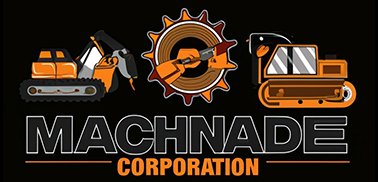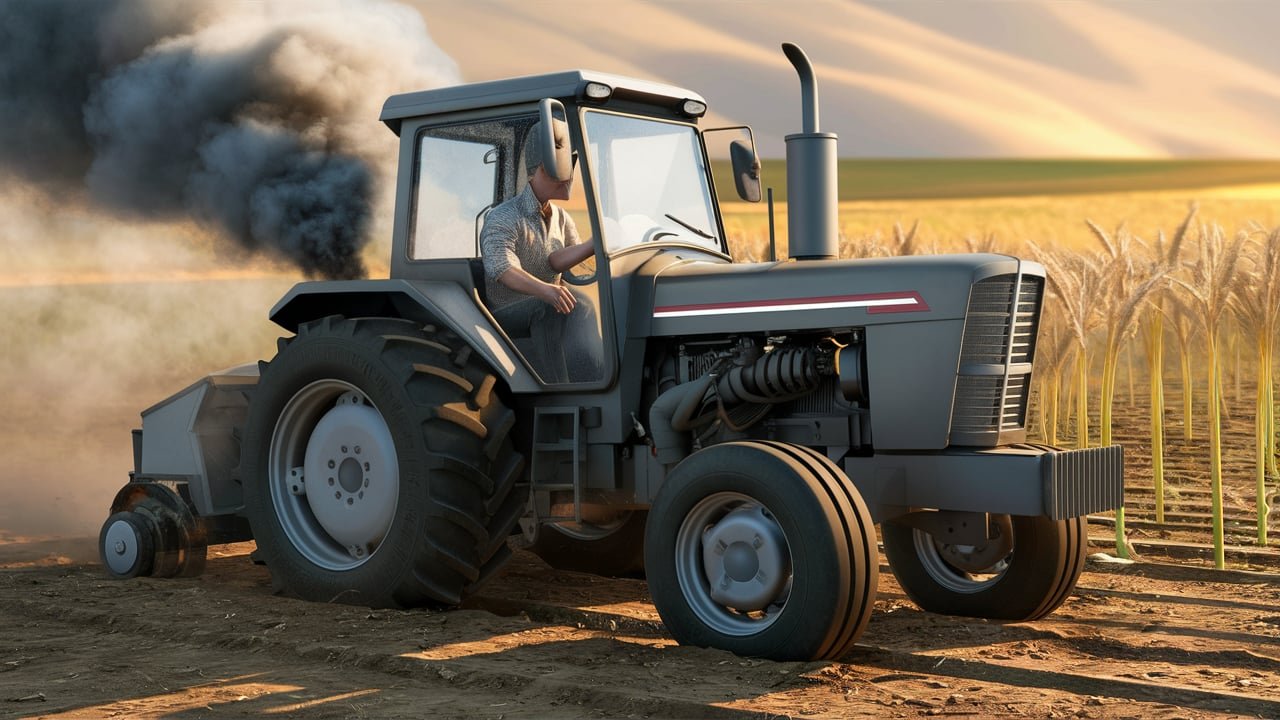Tractors, the workhorses of modern agriculture, are indispensable allies in the field. However, imagine the frustration when your trusted tractor sputters to a halt unexpectedly. Understanding the intricate machinery that powers these mighty machines is crucial for farmers, tractor owners, and agricultural workers alike.
This article delves into seven common reasons why tractors experience abrupt shutdowns during operation, shedding light on pesky issues that can disrupt your daily tasks.
Beyond being mere inconveniences, these shutdowns can impact productivity and potentially jeopardize crucial farming operations. By unraveling the mysteries behind why tractors keep shutting off, you gain not only insight but also practical knowledge to troubleshoot effectively.
From fuel system glitches to hydraulic hiccups, each potential culprit demands attention to ensure uninterrupted performance in the fields. Join us as we explore the inner workings of tractors and equip ourselves with solutions to tackle these pervasive challenges head-on.
Fuel System Issues.
One of the primary culprits behind your tractor unexpectedly shutting off could be related to fuel system issues. Clogged fuel filters serve as silent troublemakers, often restricting the smooth flow of fuel to your engine.
Imagine a water hose with a kink; similarly, a clogged filter can disrupt the necessary supply of fuel, causing abrupt shutdowns in the midst of crucial operations. Additionally, if your tractor’s fuel pump malfunctions, it won’t deliver the adequate amount of fuel required for combustion.
This inadequate delivery can lead to stalling and frequent interruptions during work hours, potentially causing delays in farm activities.

Moreover, degraded fuel quality or water contamination within the tank can spell trouble for your tractor’s engine. Poor-quality or contaminated fuel compromises the combustion process, affecting performance and resulting in sudden shutdowns.
Just as using high-quality gasoline prolongs a car’s lifespan, ensuring clean and appropriate fuel for your tractor is equally essential. Water infiltrating the fuel system can also wreak havoc by disrupting the delicate balance needed for optimal engine function. It’s akin to trying to cook with tainted ingredients; expect inconsistent results and potential breakdowns.
Understanding these intricate details of how the fuel system operates within your tractor is vital for preventing unwanted shutdowns. Regularly inspecting and replacing clogged filters, ensuring proper pump functionality, and maintaining high-quality fuel standards can significantly reduce instances of unexpected engine stoppages while working on the field.
By staying vigilant about these common culprits that cause shut-offs due to fuel system issues, you can safeguard against inconvenient downtimes and increase overall efficiency in your agricultural tasks.
Electrical Problems.
When it comes to troubleshooting why your tractor keeps shutting off, issues within the electrical system can be a frequent culprit. Loose or corroded battery connections may seem minor but can disrupt the power supply to vital components, leading to intermittent engine stalling. Imagine trying to start your tractor only for it to sputter and die due to a simple yet critical connection issue.
Another common electrical problem that can cause sudden shutdowns is a faulty ignition switch. Picture being in the middle of an important task on the farm when, out of nowhere, your tractor loses power and shuts off because of a malfunctioning ignition switch. Ensuring this component is in optimal condition is key to preventing unexpected stalls during operation.
Moreover, worn-out spark plugs might not always be top-of-mind when diagnosing shutdowns but are integral to the combustion process. Visualize your tractor struggling to maintain consistent power output or even failing to start because of spark plugs that have seen better days. Regularly checking and replacing these small yet crucial parts can prevent shutdowns caused by inefficient combustion processes.
Air Intake Blockages.
When it comes to air intake blockages on your tractor, even the smallest obstruction can have a significant impact on engine performance. Picture this: a blocked air filter is like trying to breathe through a clogged straw – the engine struggles to get enough air, leading to disrupted functionality and eventual stall-outs.
Regularly checking and replacing air filters can prevent this common issue from causing unexpected shutdowns during crucial farming operations.
Moving down the line, a clogged intake manifold is another culprit that can hamper your tractor’s performance. Think of the intake manifold as the gateway for oxygen needed for combustion in the engine.

If it gets clogged with dirt or debris, it restricts the flow of oxygen, disrupting the combustion process and resulting in sudden engine shutdowns. Maintenance tip: ensuring clean intake manifolds will help keep your tractor running smoothly without interruptions.
Lastly, consider foreign objects finding their way into your tractor’s air intake system. Leaves, dust, or other debris can block airflow entirely, causing the engine to stop abruptly. It’s akin to breathing in with a hand pressing against your mouth – there simply isn’t enough air for proper functioning.
Regularly inspecting and cleaning out any obstructions in your tractor’s air intake system is vital to preventing these inconvenient and potentially damaging engine stoppages in the midst of farm work.
Overheating Concerns.
When your tractor’s engine starts to overheat, it can trigger automatic thermal cut-offs in modern tractors designed to protect the engine from damage. One common reason behind overheating is inadequate coolant levels.
Imagine your cooling system as a firefighter; without enough water (coolant), the firefighter can’t put out fires effectively, leading the engine to reach dangerously high temperatures and shut down unexpectedly. Checking and maintaining proper coolant levels is crucial to prevent overheating-related shutdowns.
A malfunctioning radiator fan is another culprit behind overheating-related tractor shutdowns. If the radiator fan fails to cool the engine properly, it’s akin to having a faulty cooling system in your car during a scorching summer day—inefficient and potentially damaging.
The lack of adequate airflow can cause heat buildup, triggering thermal sensors that shut down the tractor for safety reasons. Regular inspections of the radiator fan’s functionality are essential for keeping your tractor running smoothly.

Additionally, overworked engines with damaged cooling systems are particularly prone to sudden shutdowns due to excessive heat generation. Picture an athlete pushing themselves beyond their limits in extreme heat without proper hydration or rest—a recipe for collapse.
Similarly, when tractors work under demanding conditions with compromised cooling systems, they are at risk of reaching critical temperatures that force them into emergency shutdown mode. Ensuring that your tractor’s cooling system is functioning optimally through regular maintenance can help prevent these overheating-induced shutdowns and keep your work uninterrupted.
Hydraulic System Challenges.
Maintaining the hydraulic system of your tractor is paramount to its smooth operation. Low hydraulic fluid levels can spell trouble, causing pressure drops that lead to a cascade of issues culminating in your tractor coming to an unexpected halt.
Imagine navigating through the fields, tending to your crops when suddenly your tractor stops in its tracks due to insufficient hydraulic fluid levels. Regularly checking and topping up this essential fluid can prevent such inconvenient and costly breakdowns.
Leaking hydraulic hoses are another common culprit behind sudden shutdowns during agricultural tasks. A small leak may seem harmless at first glance, but over time, it can diminish the efficiency of the entire system.
Picture this scenario – midway through a busy day on the farm, you notice a puddle forming under your tractor caused by a leaking hose. Ignoring this could lead to significant operational disruptions and safety hazards. It is crucial to address any leaks promptly to ensure uninterrupted functionality.
Moreover, worn-out seals or valves within the hydraulic system pose significant risks of malfunctions that ultimately result in your tractor grinding to a halt unexpectedly. Just as precise irrigation is vital for crop health, the integrity of every seal and valve in your tractor’s hydraulics directly impacts its performance.

Visualize attempting to lift heavy equipment attached to your tractor only for it to fail due to a degraded seal – highlighting the importance of vigilant maintenance practices when dealing with intricate hydraulic systems. Regular inspections and timely replacements can safeguard against such abrupt shutdowns and sustain seamless workflow on the farm.
In conclusion, understanding and addressing potential hydraulic system challenges proactively is key to preventing unanticipated tractors shutdowns while working on the fields. By prioritizing regular maintenance checks and swift repairs when needed, farmers, tractor owners, and agricultural workers can minimize downtime and maximize productivity during critical farming operations.
Regular Maintenance Practices.
Among the various reasons for tractors shutting off unexpectedly, adherence to regular maintenance practices emerges as a crucial factor in preventing frequent interruptions during operations. Conducting routine checks on vital components such as fluids, filters, belts, and electrical connections serves as a proactive measure to minimize the risk of shutdowns.
For instance, monitoring hydraulic fluid levels can prevent pressure drops that might lead to hydraulic system failures triggering tractor stops at critical moments. Additionally, ensuring clean air filters facilitate optimal airflow into the engine, reducing the likelihood of stall-outs due to blockages.
Scheduled servicing plays a pivotal role in maintaining tractor performance and averting unexpected shutdowns. By adhering to prescribed maintenance intervals for replacements and adjustments, tractor owners can address potential issues before they escalate into major malfunctions.

Picture this: timely servicing of spark plugs prevents the hindrance to proper combustion processes that could result in engine shutdowns during demanding agricultural tasks. Moreover, consistent belt inspections help prevent slippage or breakage that may cause sudden power cuts while operating the tractor.
Adhering to manufacturer guidelines for maintenance intervals and procedures offers a structured approach towards enhancing overall tractor reliability. Following these guidelines allows for addressing potential failure points proactively rather than reactively.
For example, replacing worn-out seals or valves within the hydraulic system according to manufacturer recommendations ensures uninterrupted functionality of hydraulic systems critical for various agricultural operations.
By adopting a proactive stance in complying with maintenance instructions from manufacturers, tractor owners can significantly reduce instances of abrupt shutdowns that disrupt productivity in farming activities.
Conclusion.
In conclusion, understanding the seven common reasons behind tractors shutting off during operation is imperative for farmers, tractor owners, and agricultural workers alike.
By familiarizing themselves with fuel system issues like clogged filters and improper fuel delivery, individuals can troubleshoot these concerns efficiently. Moreover, recognizing electrical problems such as loose connections or faulty ignition switches enables proactive maintenance to prevent abrupt shutdowns.
Regular maintenance practices must be emphasized as the cornerstone of ensuring uninterrupted tractor performance. By adhering to scheduled servicing intervals, inspecting essential components rigorously, and following manufacturer guidelines diligently, tractor owners can mitigate the risk of encountering unexpected shutdowns.
The importance of sustaining optimal functionality through systematic upkeep cannot be overstated, underscoring the significance of preventive measures in averting inconvenient operational disruptions.









